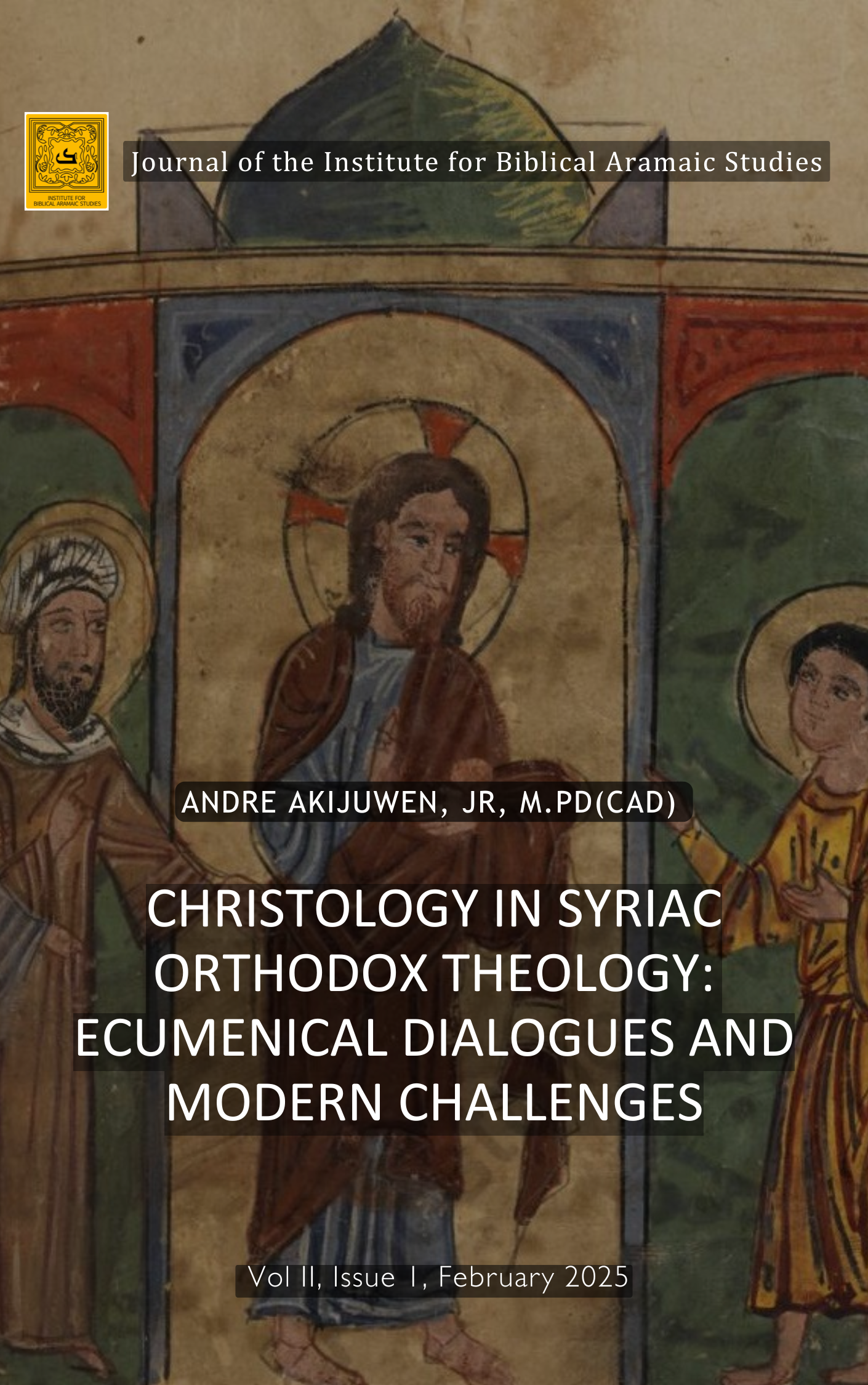Christology in Syriac Orthodox theology: Ecumenical dialogues and modern challenges
Keywords:
Syriac Orthodox, Miaphysitism, Ecumenical Dialogues, Comparative Theology, Christian Unity, Interfaith EngagementAbstract
Syriac Orthodox Christology is pivotal in ecumenical dialogues and modern theological discourse, bridging Christian traditions while addressing contemporary doctrinal challenges. This study examines the historical development, theological depth, and modern relevance of Syriac Christology, particularly in the context of its Miaphysite stance and its contributions to global Christian theology. Despite its doctrinal distinctiveness, Syriac Christology aligns with key theological principles in Eastern and Western Christian traditions, making it an essential component of theological reconciliation and inter-denominational unity.
This research employs a qualitative approach, integrating historical analysis and comparative theological methods to trace the evolution of Syriac Orthodox Christology. Primary Syriac theological texts, including the writings of Jacob of Sarug and Severus of Antioch, are examined alongside modern ecumenical agreements to assess Syriac Christology's contributions to theological discourse, liturgical dialogue, and interfaith engagement. Thematic and hermeneutical analyses are applied to evaluate the doctrinal intersections between Miaphysitism, Chalcedonian Christology, and Western theological traditions.
The findings confirm that Syriac Orthodox Christology serves as a unifying theological framework in ecumenical discussions, demonstrating that many historical Christological disputes were rooted in terminological ambiguities rather than fundamental theological contradictions. Additionally, this study highlights Syriac Christology's relevance in addressing modern theological concerns, including Secularism, religious pluralism, and Christian identity in a globalized world. The research underscores the significance of Syriac's mystical and incarnational theology, emphasizing its potential contributions to contemporary ethical, interreligious, and theological discourse.
Moving forward, further research is needed to deepen the integration of Syriac Orthodox theology into global Christian thought, ensuring that its historical wisdom and theological richness continue to shape Christian identity, foster inter-denominational unity, and inform contemporary theological discourse in the 21st century and beyond.
Downloads

Downloads
Published
Issue
Section
License
Copyright (c) 2025 Journal of the Institute for Biblical Aramaic Studies

This work is licensed under a Creative Commons Attribution 4.0 International License.
License Terms
The work published in this journal is licensed under the Creative Commons Attribution-NonCommercial-ShareAlike 4.0 International License (CC BY-NC-SA 4.0). This means that:
-
Attribution (BY): You are free to share, copy, redistribute, remix, adapt, and build upon the material in any medium or format, for noncommercial purposes only, as long as you give appropriate credit to the original author(s), provide a link to the license, and indicate if changes were made.
-
Non-Commercial Use (NC): You may not use the material for commercial purposes. Commercial use means the material is not primarily intended for or directed towards commercial advantage or monetary compensation.
-
ShareAlike (SA): If you modify, remix, or adapt the material, you must license the modified material under identical terms, meaning that your adaptations must also be licensed under the same Creative Commons license (CC BY-NC-SA 4.0).
-
Non-Exclusivity: The author retains the right to use the work in other publications, presentations, or personal use, provided proper attribution is given.
-
No Additional Restrictions: You may not apply legal terms or technological measures that legally restrict others from doing anything the license permits.
-
Licensor: The original author(s) of the work are the licensor(s), who grant you the rights outlined in this license.
-
License Link: For more information on the terms of this license, please visit Creative Commons





